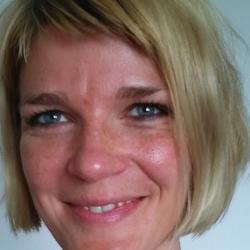Research
Heart failure is the leading cause of death worldwide. Current strategies treat the symptoms to reduce the burden on the heart and increase survival as well as life quality. Regenerative medicine, in contrast, aims to target the causes of heart failure and to improve the regenerative capacity of the heart. Regenerative medicine approaches include the generation of cardiomyocytes, the control of inflammation, as well as the induction of neovascularization processes.
In this context, we aim to develop a new strategy to deliver beneficial proteins at the site of injury. Platelets accumulate in the ischaemic myocardium and we propose that they can be modified and used as site-specific delivery vehicles. Our aim is to generate ‘universal’ platelets whose α-granules are loaded with pro-angiogenic proteins to support neovascularization in the ischaemic heart after myocardial infarction.
To achieve this objective, we are using 'Forward Programming' to differentiate human induced pluripotent stem cells (iPSCs) into megakaryocytes (MKs) and platelets. This protocol allows large-scale production of MKs and functional platelets in GMP-compatible conditions.
We will produce HLA class I deficient iPSC lines that additionally bear a special construct to package pro-angiogenic factors directly into platelet granules. These engineered 'universal, supercharged' platelets will prevent immune reactions in the recipient due to the missing HLA presentation, and their granules can deliver pro-angiogenic proteins to enhance neovascularization specifically at the site of injury.
We expect customized, in vitro produced platelets to become a valuable option as advanced cell therapy. In the context of myocardial infarction and other ischaemic events, they will be used for site-specific delivery of beneficial proteins for tissue repair and neovascularization processes.
The following papers are related to the current work:
Large-scale production of megakaryocytes from human pluripotent stem cells by chemically defined forward programming. Moreau T, Evans AL, Vasquez L, Tijssen MR, Yan Y, Trotter MW, Howard D, Colzani M, Arumugam M, Wu WH, Dalby A, Lampela R, Bouet G, Hobbs CM, Pask DC, Payne H, Ponomaryov T, Brill A, Soranzo N, Ouwehand WH, Pedersen RA, Ghevaert C. Nat Commun. 2016 Apr 7;7:11208.
Platelet-targeted gene therapy with human factor VIII establishes haemostasis in dogs with haemophilia A. Du LM, Nurden P, Nurden AT, Nichols TC, Bellinger DA, Jensen ES, Haberichter SL, Merricks E, Raymer RA, Fang J, Koukouritaki SB, Jacobi PM, Hawkins TB, Cornetta K, Shi Q, Wilcox DA. Nat Commun. 2013;4:2773.
Publications
Resident microglia rather than peripheral macrophages promote vascularization in brain tumors and are source of alternative pro-angiogenic factors. Brandenburg S, Müller A, Turkowski K, Radev YT, Rot S, Schmidt C, Bungert AD, Acker G, Schorr A, Hippe A, Miller K, Heppner FL, Homey B, Vajkoczy P. Acta Neuropathol. 2016 Mar;131(3):365-78.
Microglia inflict delayed brain injury after subarachnoid hemorrhage. Schneider UC, Davids AM, Brandenburg S, Müller A, Elke A, Magrini S, Atangana E, Turkowski K, Finger T, Gutenberg A, Gehlhaar C, Brück W, Heppner FL, Vajkoczy P. Acta Neuropathol. 2015 Aug;130(2):215-31.
Microglia inflict delayed brain injury after subarachnoid hemorrhage. Schneider UC, Davids AM, Brandenburg S, Müller A, Elke A, Magrini S, Atangana E, Turkowski K, Finger T, Gutenberg A, Gehlhaar C, Brück W, Heppner FL, Vajkoczy P. Acta Neuropathol. 2015 Aug;130(2):215-31.

